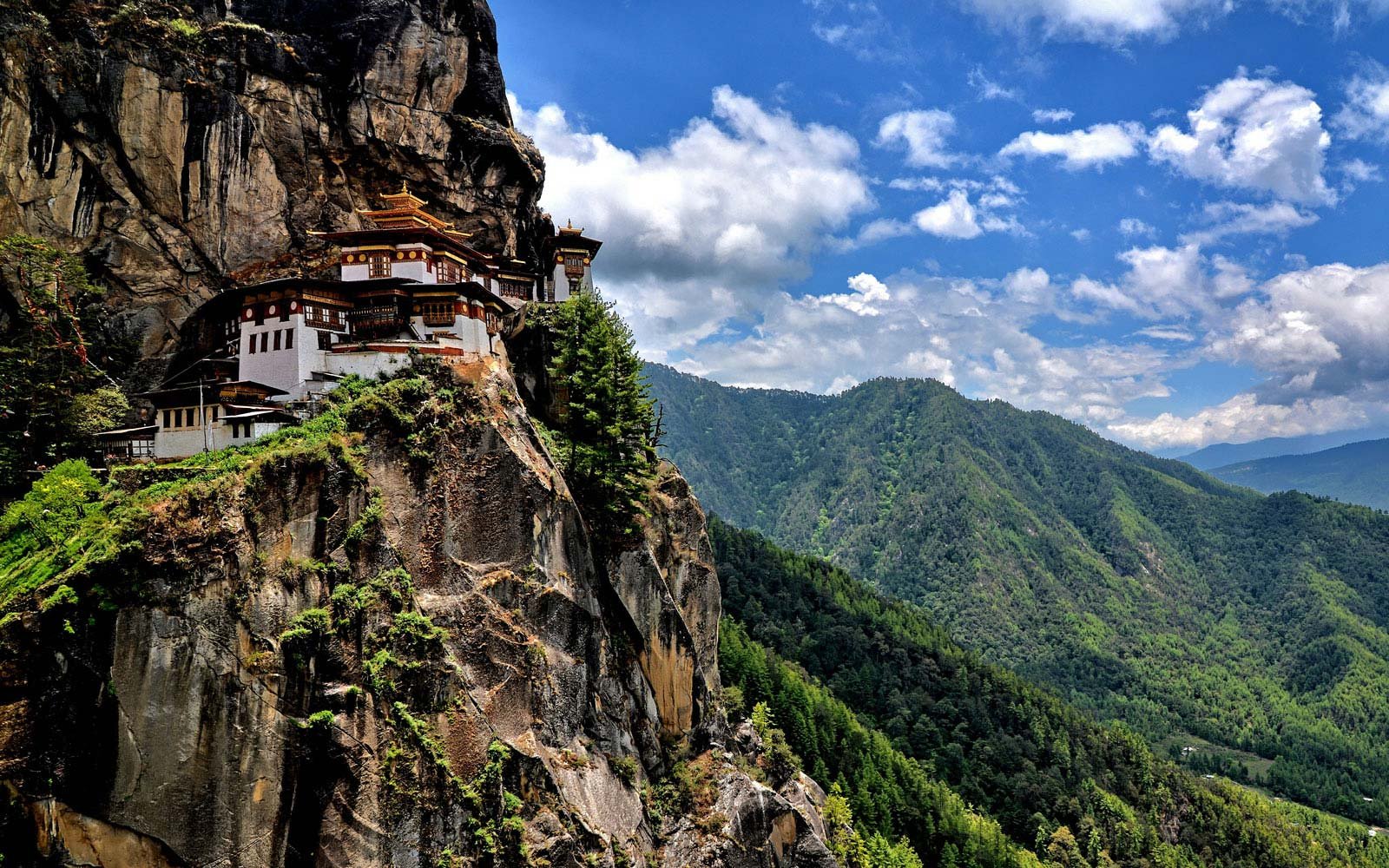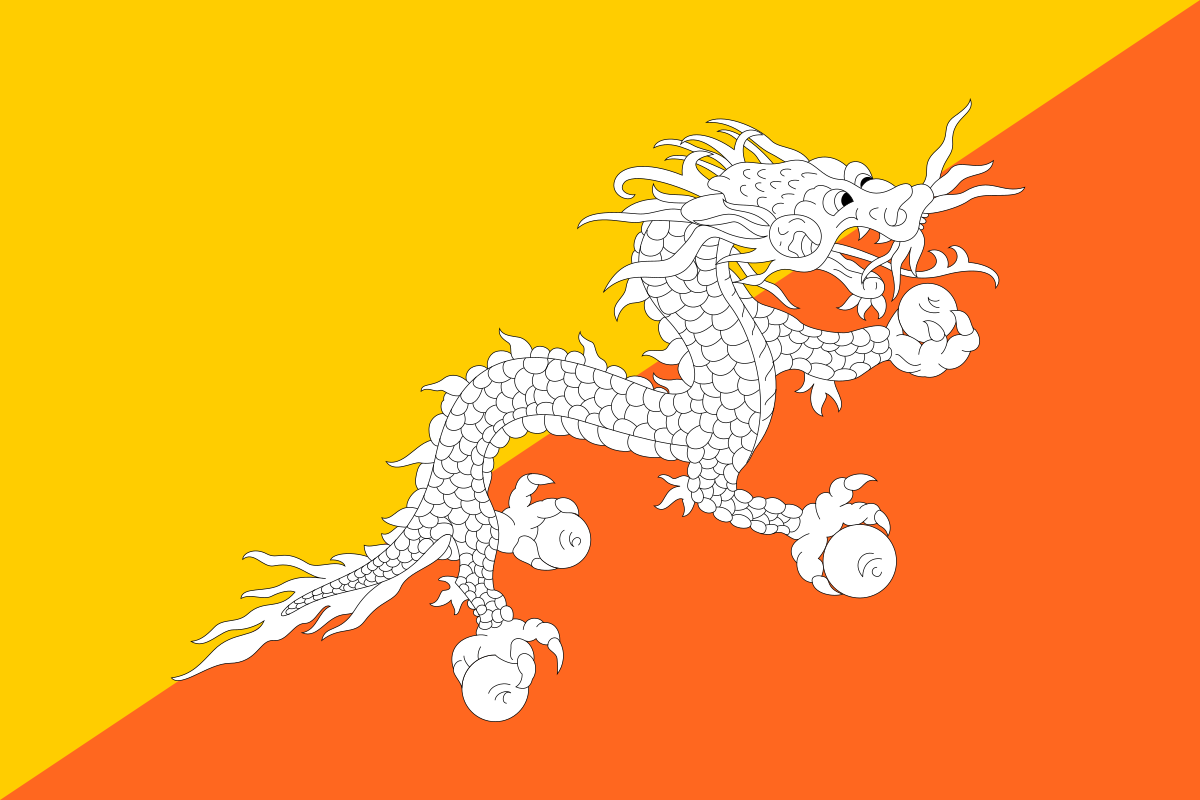
Bhutan - 56.34
83
There’s more going on in those mountains than you think
If nothing else, Bhutan is an admirable country. The nation’s leadership has a unique perspective on the world and ostensibly has highly altruistic intentions. It is the world’s first carbon-negative country, aided by the country’s vast untouched forests. Bhutan is the only country on Earth that does not recognize gross domestic product, instead focusing on gross national happiness, a metric derived from census questions asking Bhutanese citizens about their satisfaction with their way of live. Despite this, Bhutan has one of the stronger economies in South Asia. The country’s focus on gross national happiness has fostered a system of government that generally respects basic human rights (notably except those related to homosexuality) and a largely democratic constitutional monarchy. But Bhutan’s system is not perfect. Bhutan’s government is notably ban-happy and places restrictions on a number of relatively mundane things. Additionally, few freedoms are guaranteed in Bhutan. Additionally, many aspects of the country, especially its ethnic Nepalese minority, are still reeling from the Lhotshampa Cultural Genocide of the 1980s and 90s. While Bhutan is not a country without struggle, it is a case study as to how innovative forms of governance can succeed.
Human Rights - 62
Bhutan has fully abolished the death penalty. Bhutan still holds a number of prisoners from the Lhotshampa Cultural Genocide. In the 1980s and 90s, Bhutan attempted to expel the country’s ethnic Nepalese community, known as the Lhotshampa, by classing them as illegal aliens and attempting to deport them. This resulted in mass protests and large numbers of protestors were arrested. Several of them remain in custody. Additionally, Bhutan refuses to repatriate Lhotshampa expelled from the country. Most chose to stay in Nepal or India but some requested repatriation and were denied. Homosexuality was legalized in 2021 but Bhutan offers no other rights or protections. Abortion is legal to save the woman’s life or in cases of rape or incest.
Democracy - 73
Bhutan is a constitutional monarchy, limiting its score to 95. The King appoints the cabinet and acts as an official adviser to the prime minister, but his powers are largely formal and he generally cannot act unilaterally. The prime minister is appointed by the directly elected parliament and approved by the King. Elections are generally free and fair. Bhutan has a decent multi-party system, but parties must be approved by the Electoral Commission to participate in elections. This means that some parties have been rejected from participation, including the NeoMarxist Party and the Bhutan National Party. LGBT and Lhotshampa are disenfranchised in Nepal.
Freedom - 50
Bhutan does not officially have freedom of speech, association, the press, or information. In practice, these are largely unrestricted but the government has occasionally used this lack of protection to justify untransparent practices. Many locally-owned news outlets rely on government advertising, which is problematic considering that the government is known to pull advertising revenue from dissenting media. This results in self-censorship among local news outlets. Additionally, Bhutan has several unenforced defamation laws that could be used to restrict the press. Christian and Hindu churches are often denied permits to operate in rural areas and rural cops are also known to harass non-Buddhists. Bhutan has strict hate speech laws. These laws are rarely enforced but have broad provisions nonetheless. The government frequently denies assembly permits to dissenting protestors. The Lhotshampa Cultural Genocide left many Bhutanese stateless and struggling to leave or enter the country. Climbing mountains higher than 6,000 feet is illegal in Bhutan and on mountains higher than 6,000 feet people must stick to marked trails. Online pornography is strictly illegal in Bhutan but officially published media, such as movies and television shows, are not restricted. Access to tobacco is heavily restricted in Bhutan and tobacco products are only available through government dispensaries. All drugs are illegal except for those used in traditional medicines. Gun laws are ambiguous but there are few guns in Bhutan.
Economy - 61
Health - 42
Bhutan has a life expectancy of 71 years and an infant mortality rate of 2.4%. 6.5% of Bhutanese are obese and 10.5% are malnourished. Bhutan’s universal healthcare system is solid and covers most of the country but lacks a single radiology treatment center. 52% of Bhutanese have access to clean, running water.
Corruption - 82
Police harassment is not uncommon in rural areas but corruption is generally low. Bribes are frequently paid when crossing borders, especially when transporting goods from India. It is hard to obtain contracts without bribery or having a very close relationship with the government.
Competency - 55
The government is failing to provide for the people. The government is failing to protect ethnic and religious minorities. The government has also been failing to exert territorial claims, as China has been encroaching on Bhutan’s territory and building Chinese villages in Bhutan.
Future - 57
China’s continued encroachments on Bhutanese territory are worrisome.
Actions Abroad - 72
Bhutan is heavily reliant on support from India. Bhutan is the only universally recognized country on Earth to never hold official diplomatic relations with the United States. Despite this, the two countries maintain generally cordial relations, primarily conducted with India as a middle man. Bhutan is generally isolationist and maintains few diplomatic relations.
0.8% of Bhutanese live below the international poverty line and 2.4% live below the national poverty line. 3.7% of Bhutanese are unemployed. Bhutan has a moderate economic disparity. The minimum wage in Bhutan is $50.84 per month. There are no private hospitals in Bhutan but the universal healthcare system is generally strong and most of the population is covered. Bhutan does not have a radiology center in the entire country so cancer patients are instead sent to Kathmandu or Gangtok. The Bhutanese economy shrunk 6.4% in 2020 and grew 5.8% in 2019.
